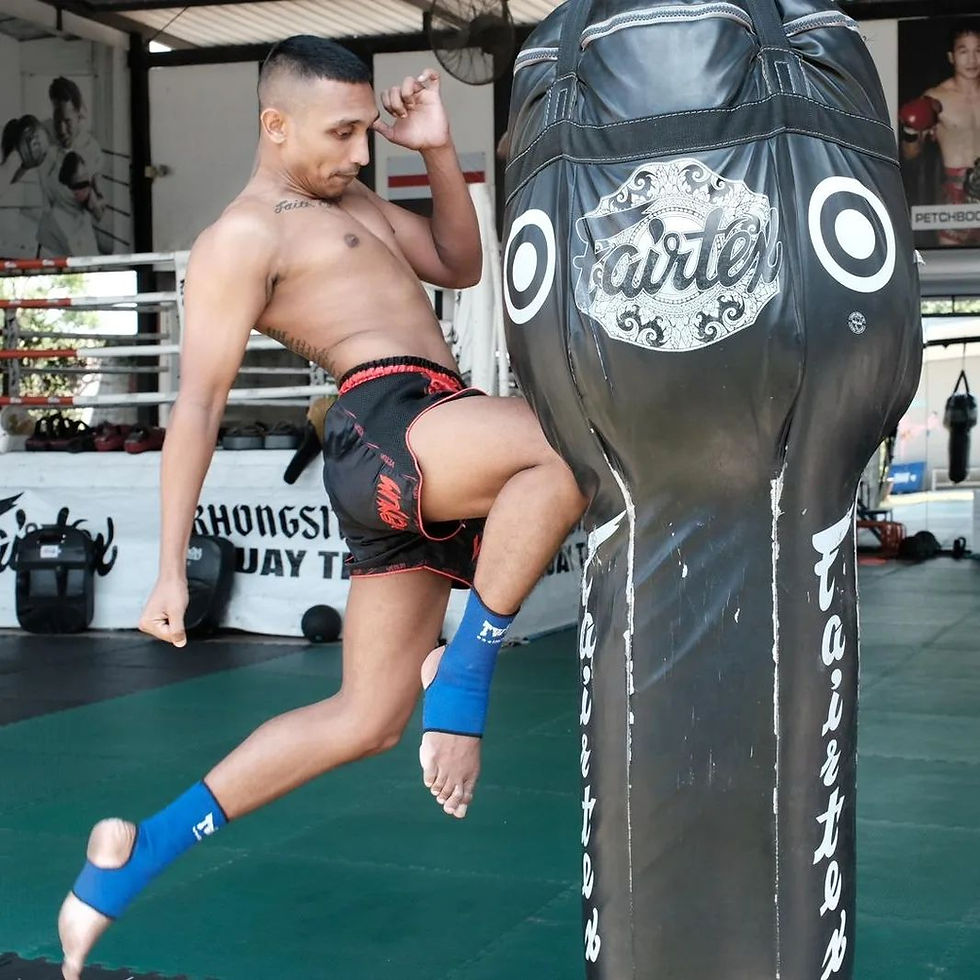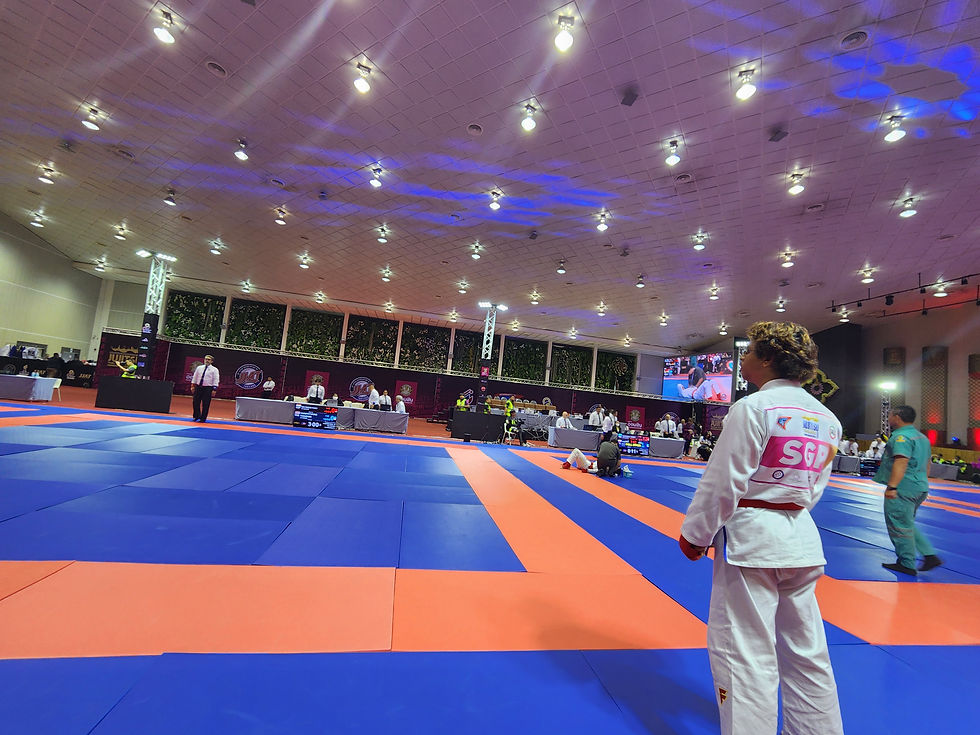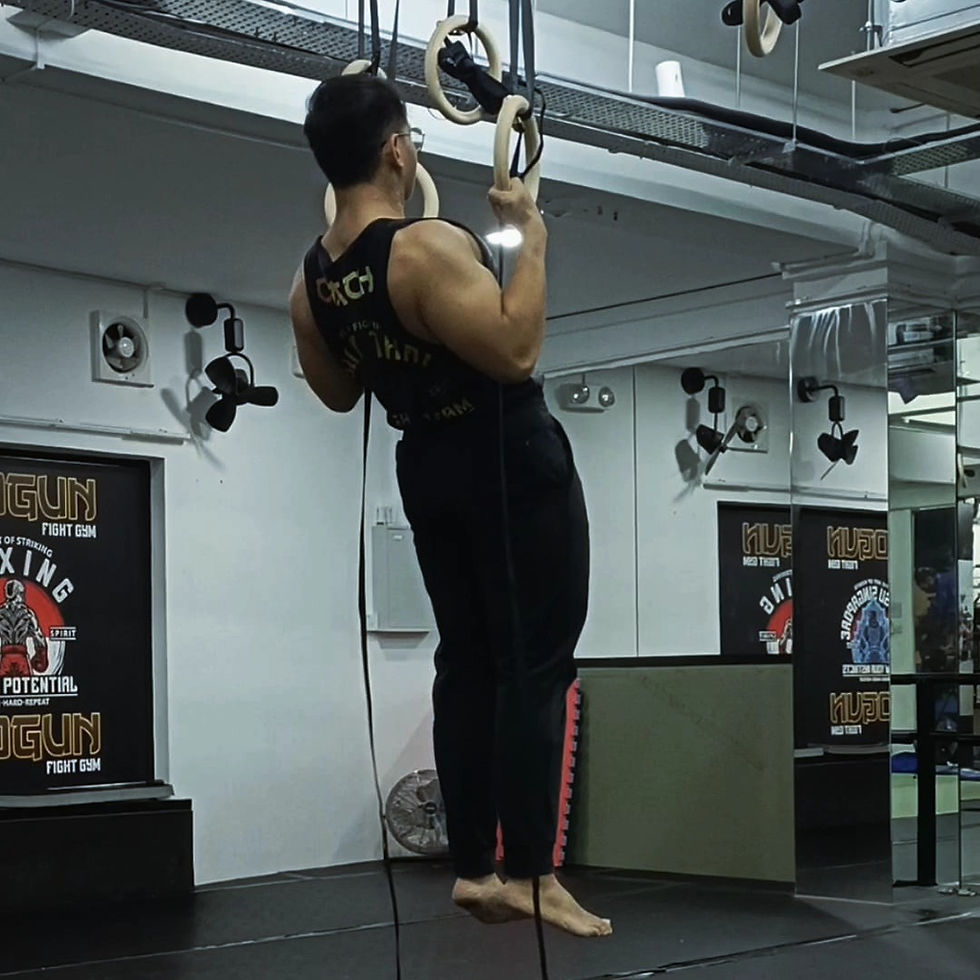Training Tips and Techniques for Martial Arts Enthusiasts
- Coach Shahri
- Jul 24, 2024
- 3 min read
Are you looking to enhance your martial arts skills and take your training to the next level? Whether you're a beginner or a seasoned practitioner, refining your techniques and incorporating effective training drills can significantly elevate your performance. In this blog, we'll explore various training tips and techniques that you can integrate into your practice sessions.
1. Focus on Fundamentals: Perfecting Your Basics
Mastering the fundamentals is essential in any martial art. Whether it's stance, footwork, or basic strikes (such as punches, kicks, elbows, and knees), consistent practice and refinement are key. Spend dedicated time during each training session to hone these foundational elements. Remember, a strong foundation sets the stage for more advanced techniques.

2. Drills for Technique Refinement
Practice makes perfect, and drills are an excellent way to refine your techniques:
Shadow Boxing: Shadow boxing allows you to practice combinations, footwork, and movement patterns without a partner. Focus on speed, accuracy, and fluidity of your strikes.
Pad Work: Partner with a training buddy or coach for pad work sessions. This drill helps improve timing, power, and precision in your strikes. Work on delivering combinations and maintaining proper form.
Bag Work: Heavy bags and speed bags are invaluable tools for developing power, endurance, and technique. Incorporate bag work into your routine to practice strikes, kicks, and knees with force and control.
Partner Drills: Partner drills involve practicing techniques with a partner, focusing on timing, distance, and reaction. Examples include sparring drills, clinch work, and grappling drills.

3. Strength and Conditioning for Martial Arts
Strength and conditioning are crucial for enhancing your martial arts performance:
Functional Strength Training: Incorporate exercises that mimic movements used in martial arts, such as squats, lunges, push-ups, and core exercises. Focus on building strength, endurance, and explosiveness.
Cardiovascular Conditioning: Martial arts require stamina and cardiovascular endurance. Include cardio workouts such as running, skipping rope, or cycling to improve your overall fitness level.

4. Flexibility and Mobility
Flexibility and mobility are often overlooked but are essential for preventing injuries and improving technique:
Dynamic Stretching: Before training, perform dynamic stretches to warm up muscles and improve range of motion. Focus on movements that mimic martial arts techniques.
Static Stretching: After training or on rest days, incorporate static stretching to improve flexibility and maintain muscle elasticity.
5. Mental Preparation and Visualization
Martial arts training isn't just physical—it's mental. Develop mental toughness and focus through:
Visualization: Visualize yourself performing techniques with precision and confidence. Mental imagery can enhance muscle memory and improve performance.
Mindfulness and Meditation: Practice mindfulness and meditation to improve concentration, reduce stress, and enhance overall mental resilience.
6. Consistency and Progression
Consistency is key to progress in martial arts. Set realistic goals, track your progress, and consistently challenge yourself to improve. Remember, martial arts is a journey of continuous learning and growth.
Conclusion
By integrating these training tips and techniques into your martial arts regimen, you can optimize your training sessions and accelerate your progress. Whether you practice Karate, Taekwondo, Brazilian Jiu-Jitsu, Muay Thai, or any other martial art, dedication to refining your skills and techniques will ultimately lead to mastery. Embrace the journey, stay disciplined, and enjoy the rewards of your hard work on the mats or in the ring. Happy training!
Remember, each martial art has its nuances and specific techniques, so tailor your training approach to suit the discipline you practice. With commitment and perseverance, you can achieve your martial arts goals and continue to evolve as a martial artist.

Comments